Approvals for Care
There are many times that you might see your primary doctor without needing approvals for care. However, there are some services that you will need approvals to get. You might need to get a referral or a prior authorization.
You do not need a referral or an authorization to get emergency care.
Referral
If you are assigned to an Alliance primary care provider (PCP), you must have a referral to see another doctor. There are some exceptions. For a complete list and to learn more, see your Member Handbook.
If your PCP thinks you need to see another doctor, they will fill out a Referral Consultation Form. Your PCP will send a copy to the doctor you are being referred to and a copy to the Alliance. The referral is how the other doctor and the Alliance know your PCP has approved the visit. We need to have a referral to pay the claim from the other doctor.
Authorized referral
In most cases, your primary care provider (PCP) will refer you to a doctor in our service area: Mariposa, Merced, Monterey, San Benito and Santa Cruz counties. If your PCP refers you to a doctor out of our service area, they need to get approval from us in advance. This is called an authorized referral, because we must authorize (approve) the referral before you can see the other doctor.
If you are an Alliance In-Home Supportive Services (IHSS) member, you will also need an authorized referral if your PCP is referring you to a doctor that does not work with the Alliance — even if the doctor is in our service area.
Alliance members who are enrolled in the California Children’s Services (CCS) Program will also need an authorized referral for specialty care.
Prior authorization
The Alliance has to approve some services, procedures, medications and equipment before you get them. This is called prior authorization. The provider who is going to perform the service must send us a request for prior authorization, letting us know what you need and why. The Alliance will review the request and any medical records the provider sends. If the service, procedure, medication or equipment is medically necessary and a covered benefit, we will approve the request. We will also let the provider know, and then you can get the service.
If we deny a request, we will let you and the provider know. You can file an appeal if you disagree with our decision.
How long does an approval for a prior authorization take?
For services that are not urgent, we make decisions within 5 business days from when we get the request.
If your doctor or health care provider tells us that the standard approval timeframe could affect your life or well-being, we make our decision within 72 hours.
How will I know if I my prior authorization is approved?
Your doctor will get a fax with the decision within one business day from the decision date. Your doctor will then tell you about the decision. Sometimes, we may also call you. If services are changed or denied, we will send you a Notice of Action (NOA) letter by mail within two business days of the decision. This letter will explain why the service was denied and what you can do if you don’t agree. A copy will be sent to the provider when an Authorization Request is being reviewed at the same time as you are getting services (this is called concurrent review). We will make sure that necessary care is not changed or stopped until your doctor creates a care plan that fits your medical needs.
For more information, please see the Member Handbook or talk to your provider.
Post-service authorizations
If your doctor couldn’t get prior approval before giving you care, they have 30 days to send us a request after the service date. We will review it and decide if we can approve it. Some surgeries need approval ahead of time, but in some medical emergencies, we can approve it after the fact.
If you received services and were not eligible for benefits at the time the service was provided, but you have coverage for that date of service now, we need the request within 60 days from the date eligibility was granted.
How long does a post-service authorization take?
We’ll let you and your doctor know if we approve, change or deny the request within 30 days.
How will I know if my post service authorization is approved?
You’ll get a letter with the decision. If we deny the request, we will send you and your doctor a Notice of Action (NOA) letter, which will explain why and tell you how to appeal if you disagree with our decision.







